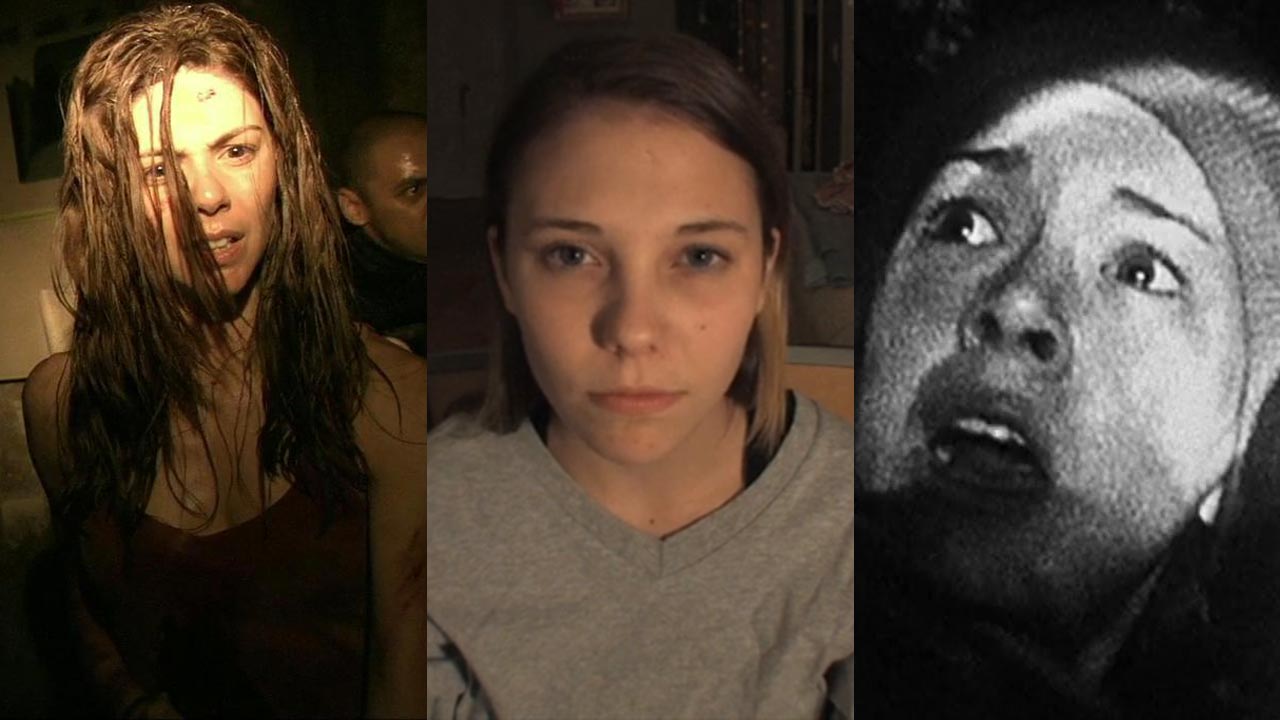Hey there, mystery lovers! If you’ve ever sat glued to your screen, heart racing, while watching the psychological thriller "Megan Is Missing," you might’ve wondered: is this movie based on a true story? Well, buckle up because we’re diving deep into the world of online dangers, missing persons, and the chilling reality behind this film. Spoiler alert: it’s not all fiction!
Released in 2011, "Megan Is Missing" shook audiences with its raw portrayal of how easily predators can exploit social media platforms. The film tells the harrowing story of two best friends, Amy and Megan, whose lives spiral out of control after a series of poor decisions online. While the movie is fictional, it’s rooted in the very real dangers that millions of people face every day on the internet.
So, is the movie Megan Is Missing based on a true story? Let’s break it down together. In this article, we’ll explore the origins of the film, its connection to real-life cases, and the alarming statistics that make this story feel so eerily authentic. Whether you’re a fan of true crime or just someone who wants to stay safe online, this article’s got you covered.
Read also:Thalia Matos Rising Star In The Spotlight
Here’s what we’ll cover:
- The Origins of the Film
- Is It Based on a True Story?
- Real-Life Cases That Inspired the Film
- The Dangers of Social Media
- Statistics on Online Predators
- The Movie’s Impact on Society
- How to Stay Safe Online
- The Director’s Vision
- Critic Reviews and Audience Reactions
- Final Thoughts
The Origins of the Film
Let’s rewind to the early 2010s, when social media was just starting to take over the world. Platforms like MySpace and Facebook were all the rage, and people—especially teens—were sharing everything about their lives online without a second thought. It was this digital revolution that inspired director David R. Ellis to create "Megan Is Missing." But what sparked his interest in such a dark topic?
David R. Ellis, known for films like "Final Destination 2" and "The Triangle," wanted to shed light on the darker side of the internet. He teamed up with writer Greg Cox to craft a story that would resonate with audiences and serve as a warning about the dangers lurking in cyberspace. The result? A gripping, low-budget film that left viewers questioning the safety of their online lives.
And here’s the kicker: while the movie is fictional, it’s heavily inspired by real-life events. The filmmakers wanted to create something that felt authentic, something that would make viewers think twice before clicking "accept" on a friend request from a stranger.
Is It Based on a True Story?
Alright, let’s cut to the chase: is "Megan Is Missing" based on a true story? The short answer is no, the movie itself isn’t a direct retelling of a specific real-life case. However, it’s a composite of several true stories involving online predators and missing persons. The filmmakers took elements from various cases and wove them into a single narrative to create a powerful and chilling film.
Think of it like this: while the characters Amy and Megan aren’t real people, their experiences mirror the struggles of countless individuals who’ve fallen victim to online predators. The film serves as a cautionary tale, reminding us that the internet isn’t always as safe as it seems.
Read also:Diana Jean Lovejoy The Iconic Figure Who Left A Mark In History
Where Does the Inspiration Come From?
One of the most significant inspirations for the film comes from the story of Elizabeth Smart, a young girl who was abducted in 2002 after forming a connection with her captor online. While Elizabeth’s case didn’t involve social media in the way we know it today, it highlighted the dangers of trusting strangers on the internet. Cases like hers were instrumental in shaping the narrative of "Megan Is Missing."
Another key inspiration was the growing trend of online grooming, where predators manipulate and exploit vulnerable individuals through digital platforms. This was a hot topic in the early 2010s, and the film capitalized on the fear and uncertainty surrounding it.
Real-Life Cases That Inspired the Film
While "Megan Is Missing" isn’t a direct retelling of any one case, it draws heavily from several real-life incidents. Here are a few examples:
- The Elizabeth Smart Case: As mentioned earlier, Elizabeth Smart’s abduction in 2002 was a major inspiration for the film. Her story brought national attention to the dangers of online predators.
- The Ashleigh Hall Case: In 2009, 17-year-old Ashleigh Hall was tragically murdered after meeting a man she had befriended online. Her case was one of the first high-profile examples of the dangers of social media.
- The Lauren Squires Case: In 2010, Lauren Squires disappeared after meeting someone online. Her case sparked widespread concern about the safety of young people on the internet.
These cases, among others, helped shape the narrative of "Megan Is Missing" and ensured that the film felt authentic and relevant to its audience.
The Dangers of Social Media
Now, let’s talk about the elephant in the room: the dangers of social media. Platforms like MySpace, Facebook, and even today’s TikTok and Instagram have revolutionized the way we connect with others. But with great power comes great responsibility—and unfortunately, not everyone uses these platforms responsibly.
Online predators often use social media to target vulnerable individuals, especially teens and young adults. They create fake profiles, send friend requests, and slowly build trust with their victims. Once they’ve gained someone’s trust, they can manipulate them into doing things they wouldn’t normally do—like meeting in person or sharing intimate details about their lives.
And here’s the scary part: it’s easier than you think. According to a study by the National Center for Missing & Exploited Children, one in seven teens who use the internet has received an unwanted sexual solicitation. That’s a staggering statistic, and it highlights just how dangerous the online world can be.
Staying Safe on Social Media
So, how can you protect yourself and your loved ones from online predators? Here are a few tips:
- Never accept friend requests from strangers.
- Be cautious about sharing personal information online.
- Use privacy settings to control who can see your posts.
- Trust your instincts—if something feels off, it probably is.
Remember, the internet is a powerful tool, but it’s important to use it wisely. By staying informed and taking precautions, you can enjoy all the benefits of social media without putting yourself at risk.
Statistics on Online Predators
Let’s talk numbers. According to a report by the Crimes Against Children Research Center, approximately 13% of teens aged 10-17 have been subjected to unwanted sexual solicitations online. That’s more than one in ten teens—a statistic that should make us all sit up and take notice.
Here are a few more alarming numbers:
- 42% of teens have experienced some form of cyberbullying.
- 25% of teens have met someone in person whom they first met online.
- 16% of teens have sent or received sexually suggestive images.
These statistics paint a sobering picture of the online world. They remind us that while the internet is a wonderful tool for connection and communication, it’s also a place where danger can lurk.
The Movie’s Impact on Society
Since its release, "Megan Is Missing" has had a significant impact on society. It’s sparked conversations about online safety, inspired changes in legislation, and even influenced the way we think about social media. But how exactly has the film made such a lasting impression?
For starters, it’s raised awareness about the dangers of online predators. Before the film’s release, many people were blissfully unaware of just how easy it is for predators to exploit social media platforms. "Megan Is Missing" changed that, shining a spotlight on an issue that affects millions of people worldwide.
It’s also led to changes in policy. In the years following the film’s release, several countries have implemented stricter laws to protect children online. For example, the U.S. passed the Protect Our Children Act, which increased funding for law enforcement agencies tasked with combating online child exploitation.
How Has the Movie Affected Parents?
Parents have been particularly affected by "Megan Is Missing." Many have reported feeling more vigilant about their children’s online activities after watching the film. Some have even implemented new rules and guidelines for internet use in their homes.
And that’s a good thing. By staying informed and involved, parents can help protect their children from the dangers of the online world. It’s all about striking a balance—allowing kids to enjoy the benefits of technology while keeping them safe from harm.
How to Stay Safe Online
So, what can you do to stay safe online? Here are a few practical tips:
- Use strong, unique passwords for all your accounts.
- Enable two-factor authentication whenever possible.
- Be cautious about clicking on links or downloading files from unknown sources.
- Report any suspicious activity to the platform or authorities immediately.
Remember, the internet is a shared space, and it’s up to all of us to make it a safer place. By following these tips and staying informed, you can help protect yourself and others from the dangers of the digital world.
The Director’s Vision
David R. Ellis had a clear vision when he set out to make "Megan Is Missing." He wanted to create a film that would resonate with audiences and serve as a warning about the dangers of the internet. And by all accounts, he succeeded.
In interviews, Ellis has spoken about the challenges of making a low-budget film with such a heavy topic. He knew that the success of the film would depend on its ability to feel authentic and relatable. That’s why he worked closely with Greg Cox to craft a narrative that drew on real-life cases and experiences.
And it paid off. "Megan Is Missing" went on to become a cult classic, praised for its raw portrayal of online dangers and its ability to spark important conversations about internet safety.
Critic Reviews and Audience Reactions
So, how did critics and audiences react to "Megan Is Missing"? Let’s take a look:
Critics were generally positive about the film, praising its authenticity and emotional impact. Many noted that while the movie wasn’t perfect, it succeeded in delivering a powerful message about online safety. Some even compared it to other classic thrillers, citing its ability to keep viewers on the edge of their seats.
Audiences, on the other hand, were divided. While some praised the film for its realism and emotional resonance, others criticized it for being too dark and unsettling. But one thing everyone agreed on was that "Megan Is Missing" was a film that stayed with you long after the credits rolled.
Final Thoughts
So, is the movie Megan Is Missing based on a true story? While the film itself isn’t a direct retelling of any one case, it’s heavily inspired by real-life events involving online predators and missing persons. It’s a powerful reminder of the dangers that lurk in the digital world and a call to action for all of us to stay safe online.
As we’ve explored in this article, the internet is a double-edged sword. It’s a tool that can connect us with others, help us learn new things, and even change the world. But it’s also a place where danger can lurk if we’re not careful. By staying informed, taking precautions, and supporting each other, we can make the internet a safer place for everyone.
So, what’s next? If you’ve enjoyed this article, why not share it with your friends and family? And if you’re looking for more insights into the world of online safety, be sure to check out our other articles. Together, we can make a difference!


